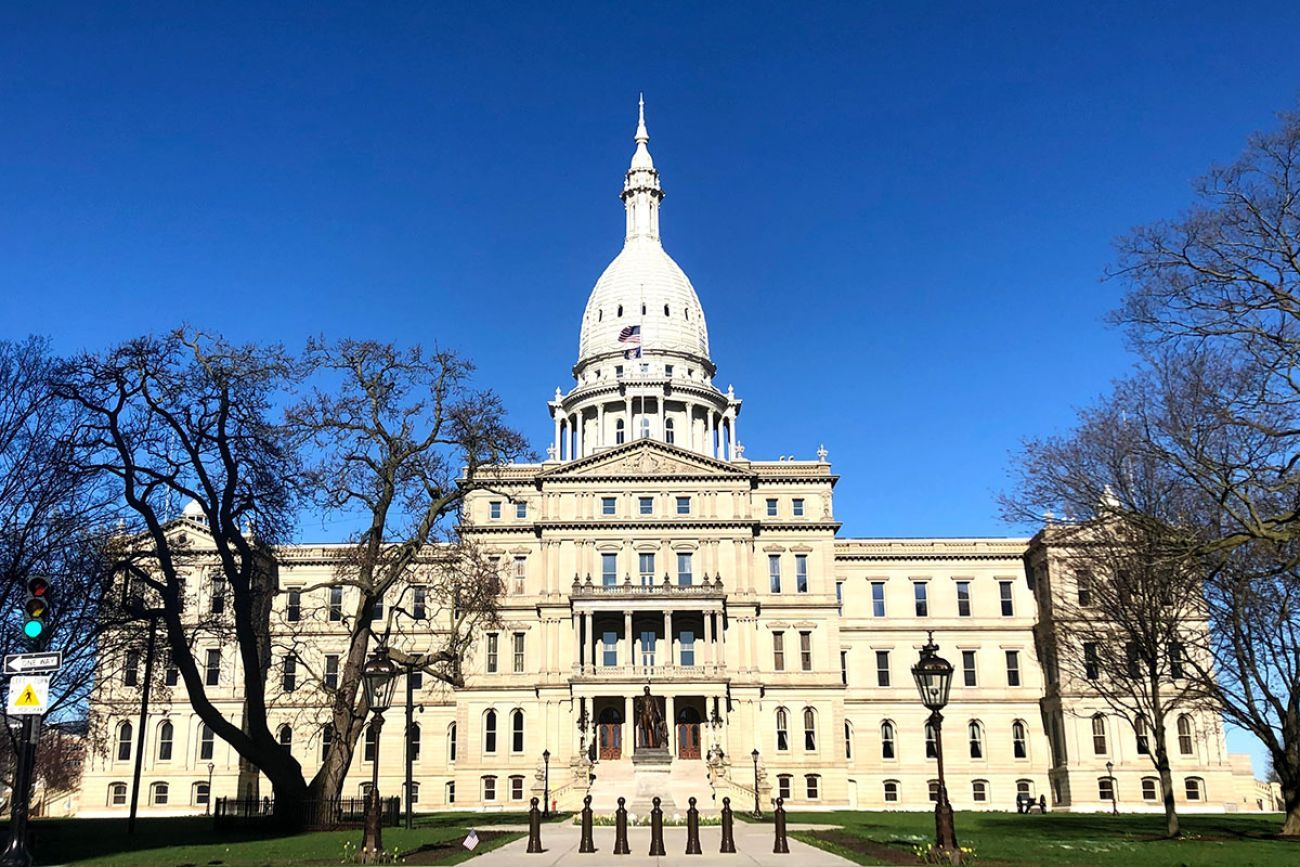The $670 million question blocking a Michigan budget deal

- A debate about what to do with perceived ‘savings’ in the teacher pension system has delayed a Michigan budget deal
- Senate Republicans voted against a plan that would have reduced some employees’ contributions to retiree health care
- School districts are approving local budget plans this month
LANSING — After Michigan spent years setting aside money for teacher retiree health care, majority Democrats are now at odds over who should benefit from $670 million in payments they contend are no longer necessary.
The debate has delayed efforts to finalize a roughly $20 billion state education budget for next year, leaving local school officials in the lurch as they work to adopt their own spending plans by the end of June.
Michigan Senate Democrats this week approved a bill that would lower repayment requirements for the state’s legacy educator pension system, a change required to realize other policy proposals in the education budget.
But in doing so, Senators acknowledged the proposal may change as negotiations with the state House and Gov. Gretchen Whitmer continue next week ahead of a planned summer recess.
The funding debate was made possible by new data showing teacher retirement health care obligations are now fully funded, at least on paper.
Related:
- Private preschools fear cuts, closures under ‘gut punch’ Michigan plans
- Michigan elections FAQ: Does Michigan Lottery money go directly to schools?
- Whitmer seeks $670M for Michigan schools. Critics call it a ‘raid’
At one point, officials had not expected that to happen until 2038, said Craig Thiel, research director at the nonpartisan Citizen’s Research Council of Michigan.
“So these dollars showed up in the budget pretty much unexpectedly,” Thiel told Bridge.
Education groups, lawmakers and Whitmer disagree on what to do with the extra cash. Republicans, meanwhile, say the competing proposals each amount to a “raid” on retirement benefits the state has worked hard to fund.
Whitmer in February proposed scaling back state contributions for teacher retiree health care, which would free up money for one of her top education budget priorities: Free, universal preschool.
Democratic legislative leaders have their own ideas for the money and have not included universal Pre-K in their own budgets, while school groups and educators want to see their required retiree payment contributions reduced.
Michigan’s teacher pension system has undergone multiple changes over the past decade, but the state is required to pay out benefits to future participants and doesn’t yet have the money to cover those full costs.
While the portion dedicated to health care is fully funded, broader future pension costs remained roughly $29.9 billion underfunded as of May. Some Republicans legislators argue the health care payments should be redirected toward covering all pension obligations more quickly.
The state Senate on Thursday voted along party lines to advance Senate Bill 911, which removes the requirement that some retirees pay 3% toward funding their retiree health care but does not reduce the rate school districts have to pay into the retirement health care fund.
Sen. Darrin Camilleri, D-Trenton, called the legislation “a key step to putting more money back in the pockets of teachers and put more more money directly back into our classrooms,” while Senate Majority Leader Winnie Brinks, D-Grand Rapids, said the bill “actually puts money back in schools and it gives teachers a raise. That’s it.”
Republicans panned the legislation and voted against it en masse.
“This haphazard maneuver will drive us back to the Granholm era, the lost decade of racking up debts, sticking future generations with the bill,” Senate Minority Leader Aric Nesbitt, R-Porter-Township, said in a floor speech.
Bridge requested comment from the governor’s office, and a spokesperson said she didn’t “have anything to add.”
School boards across the state are approving district budgets this month. Lawmakers generally aim to complete the state education budget by the end of June.
Groups representing public school districts agree that future retiree health care benefits are now well funded, but they want to see direct benefit.
They’ve pushed the legislature to lower their contributions, set in law at about 21% of their payroll costs, to about 14%, removing their own health care pension contributions. The change could allow districts to free up $450 to $600 per student per year, according to the letter sent by school groups and teacher unions.
“We remain committed to our education coalition’s proposal and will continue working with lawmakers to find a solution that provides financial relief to educators and school districts and frees up much-needed funding for the classroom,” said Peter Spadafore, executive director of the Michigan Alliance for Student Opportunity after the Senate Thursday vote.
It’s likely more changes will be made before the budget is finalized in the coming weeks. A version of the legislation introduced in the Michigan House would lower districts’ payroll contribution.
See what new members are saying about why they donated to Bridge Michigan:
- “In order for this information to be accurate and unbiased it must be underwritten by its readers, not by special interests.” - Larry S.
- “Not many other media sources report on the topics Bridge does.” - Susan B.
- “Your journalism is outstanding and rare these days.” - Mark S.
If you want to ensure the future of nonpartisan, nonprofit Michigan journalism, please become a member today. You, too, will be asked why you donated and maybe we'll feature your quote next time!




